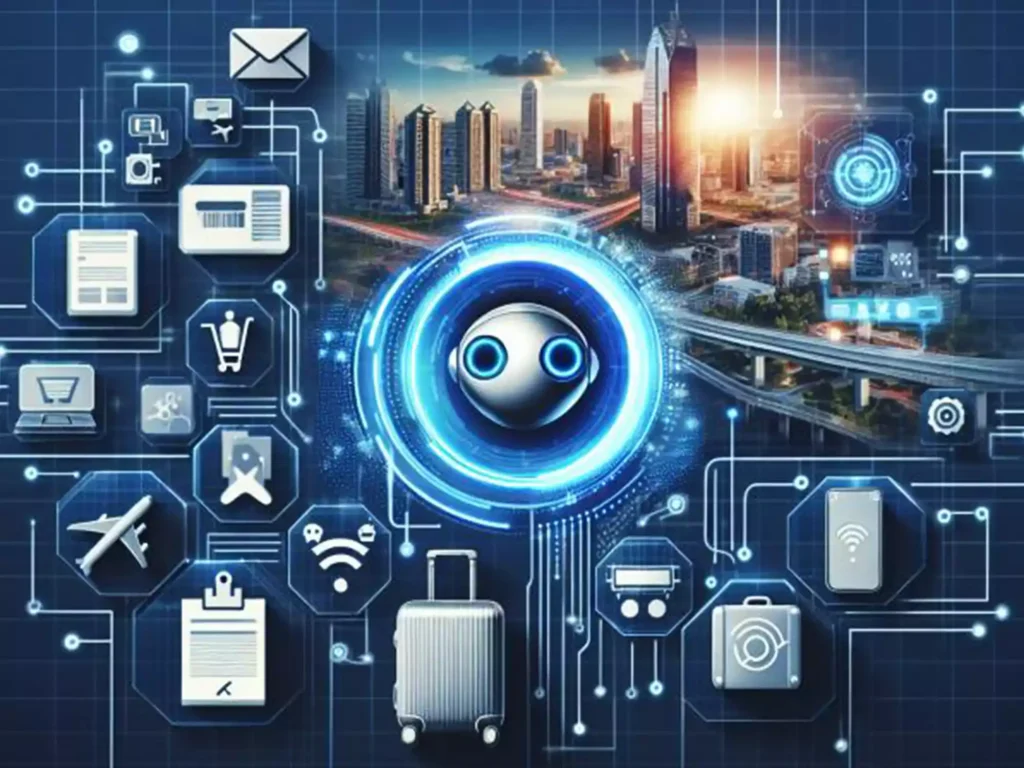Tech-Enhanced Travel: AI is Transforming the Tourism Industry

Have you found your friend’s Instagram post or a blog that you read online influencing the choice for your next holiday destination? Well, you are not alone! Technology has a growing influence on the tourism industry today. It takes only one viral post for an erstwhile little-known place to become the most sought-after destination. Not just your choices, your experience of a place in terms of instant assistance, and the way your itinerary is planned to make the most of your time are all being influenced using various technologies- the most prominent among them being AI.

Artificial Intelligence, better known as AI, made its debut in the tourism industry comparatively recently. But its use has completely revolutionised the travel world. You can have thoroughly personalised itineraries made in seconds. You can avail of round-the-clock support in any language of your choice with chatbots. The use of AI also helps industry insiders to manage their business as per the latest trends, ensure efficient utilization of resources and respond to customer queries within the shortest period of time, all the while ensuring minimal impact on the environment.
That’s not all, AI also has a vast scope of making sustainable tourism accessible to all people across the world. Intrigued? Let us delve deeper to explore the full impact of AI on the tourism industry.
AI-Powered Personalization: Customizing Travel Experiences

Gone are the days when people would travel based on fixed itineraries offered by tour companies or found in magazines. In the modern world where everything is customised to one’s preferences, why should holidays be left to the choice of others?
The foremost benefit that AI brings to the tourism world is customised travel experiences. AI can sift through large amounts of data to analyse trends, go through your previous bookings and social media activities to understand your experience and take into consideration factors such as available time and budget to come up with the best choices for you.
The AI-powered personalization can align your plans with your tastes and preferences, guaranteeing a more enjoyable holiday experience. What’s more, AI-based personalized trip planning is fast and far more accurate compared to conventional planning techniques. No wonder, it has already become a top preference of avid travellers.
You may also like: Digital Nomad Hotspots: Best Places to Work and Explore
Smart Destination Management: Enhancing Tourist Services

While harnessing the power of AI enables travellers to make smart choices, the use of the same tool by service providers can help them with smart destination management. Studies and real-life applications have both proven that the use of AI can help create safer and more enjoyable experiences for visitors.
Places that have the potential to attract huge footfall can use predictive analysis based on historical data to foretell crowd behaviour, weather patterns and other relevant factors that can help in managing crowd congestion and safety risks.
AI in tourism services has led to tourist service optimization, ensuring ease on the part of the providers and a smoother experience for the travellers. No wonder it is being so widely adopted all across the world.
Predictive Analytics in Travel: Forecasting Trends and Demand

Another area that has been addressed by AI in further smoothening the tourism industry is predictive analysis in travel to forecast demands and trends. Conventionally, hotels and travel companies would launch into meticulously planning before each peak tourist season to ensure they could accommodate the surge in the number of guests. But even months of planning cannot come close to the results yielded by the use of AI.
The areas where AI is particularly helpful include pricing optimization, inventory management, and capacity planning. Demand forecasting with AI includes analysing vast amounts of historical data, including booking patterns, customer behaviour and competitor pricing along with external factors such as the season or any upcoming event that may attract a large crowd. The result is a pricing optimization model that allows businesses to adjust their pricing in real-time.
Similarly, forecasting demand enables businesses to manage their inventories in a way that minimises wastage while meeting everyone’s needs, adding to overall efforts towards sustainability.
You may also like: Exploring India on a Shoestring: Budget-Friendly Solo Travel Destinations
Enhanced Customer Support: AI-Powered Chatbots and Virtual Assistants

All of us have known the frustration of long phone holds or delayed email responses on trying to have our queries sorted during trips. Well in this area too, the use of AI has completely changed the way tour conductors and hoteliers offer real-time assistance to travellers.
From simple booking cancellations to complicated changes in itineraries and complex queries, AI-supported customer support can attend to all of it in a matter of few moments. They are operative 24 x 7 with several language preferences, meaning they drastically reduce wait time and enable seamless interactions.
The use of virtual assistants in tourism also frees up the human agents, enabling them to attend to the more complex tasks with added attention.
Comments
Post a Comment